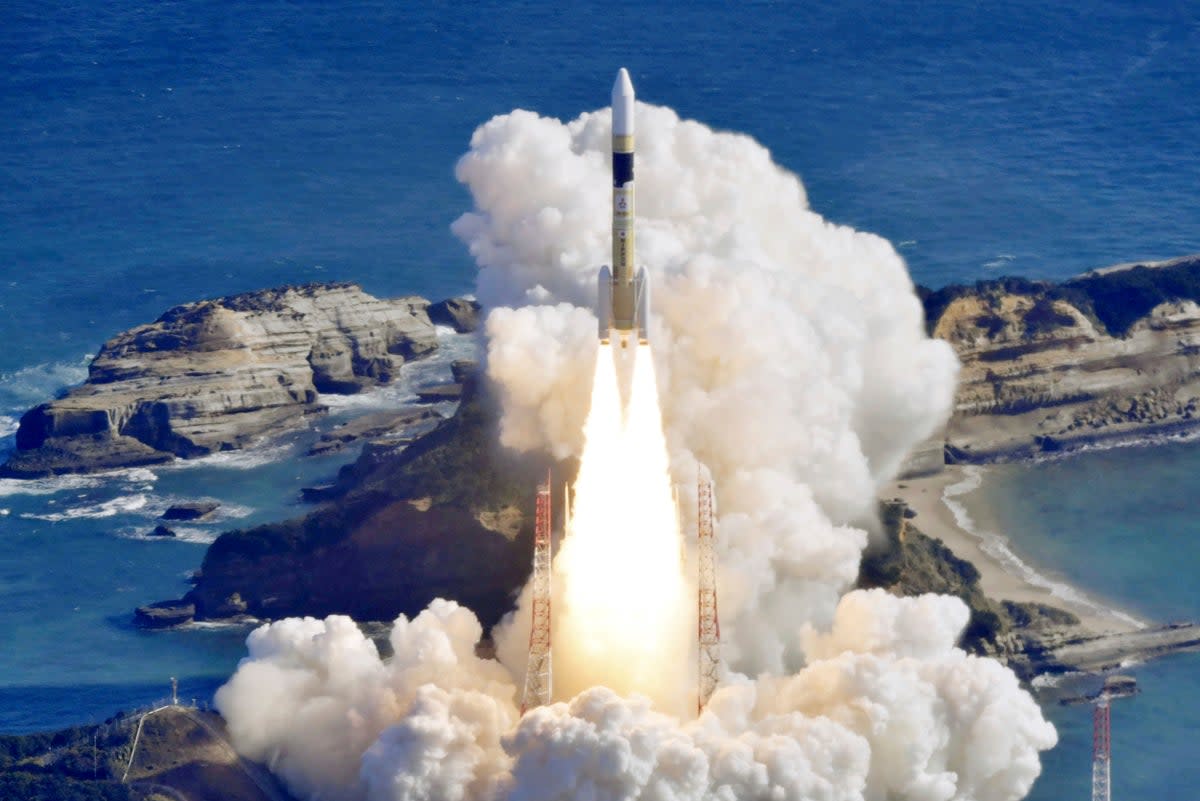Japan launches satellite to spy on North Korea’s weapons programme

- Oops!Something went wrong.Please try again later.
Japan successfully placed a new spy satellite into orbit on Friday, and say it could provide important intelligence tracking movements at military sites in North Korea.
The satellite was launched on an H2A liquid-fuel rocket from the Tanegashima Space Centre in southwestern Japan.
The satellite will capture coloured photographs of the Earth’s surface and a radar satellite will capture photographs at night, in overcast and severe weather.
Japan says the satellite could also help improve responses to a range of major natural disasters. It comes just days after a magnitude 7.6 earthquake with its epicentre in Ishikawa killed more than 200 people.
Officials at the space centre initiated the launch at 1.45pm local time and confirmed later that its payload had reached orbit, reported The Asahi Shimbun.
With Friday’s successful mission, Japan now has five operational reconnaissance satellites in space. One of the satellites can transmit high-definition data to Earth.
The H2A launch was closely watched, at a time when Japan is developing a new flagship rocket – the H3 – as its long-term successor.
The new rocket, developed by Mitsubishi Heavy and the Japan Aerospace Exploration Agency, failed its first test flight in March last year. Another attempt is scheduled to take place next month.
Mitsubishi Heavy’s rockets, including Friday’s, have two solid-fuel sub-rockets and are known for their remarkable 98 per cent success rate. It has recorded 41 consecutive successes after a failure seen in 2003.
Japan is aiming to develop a network of as many as 10 operational spy satellites in orbit, in part to watch for early warning signs of possible missile launches from North Korea. Pyongyang’s missile tests last year at times sent Japanese citizens scrambling for bomb shelters, and there is no indication that Kim Jong-un is planning to abandon the weapons programme in the near future.
Prime minister Fumio Kishida’s government, under its national security strategy adopted in 2022, is pushing to deploy long-range US-made Tomahawk and other cruise missiles as early as next year to build up more strike capability, breaking from the country’s exclusively self-defence-only postwar principle, citing rapid weapons advancement in China and North Korea.

